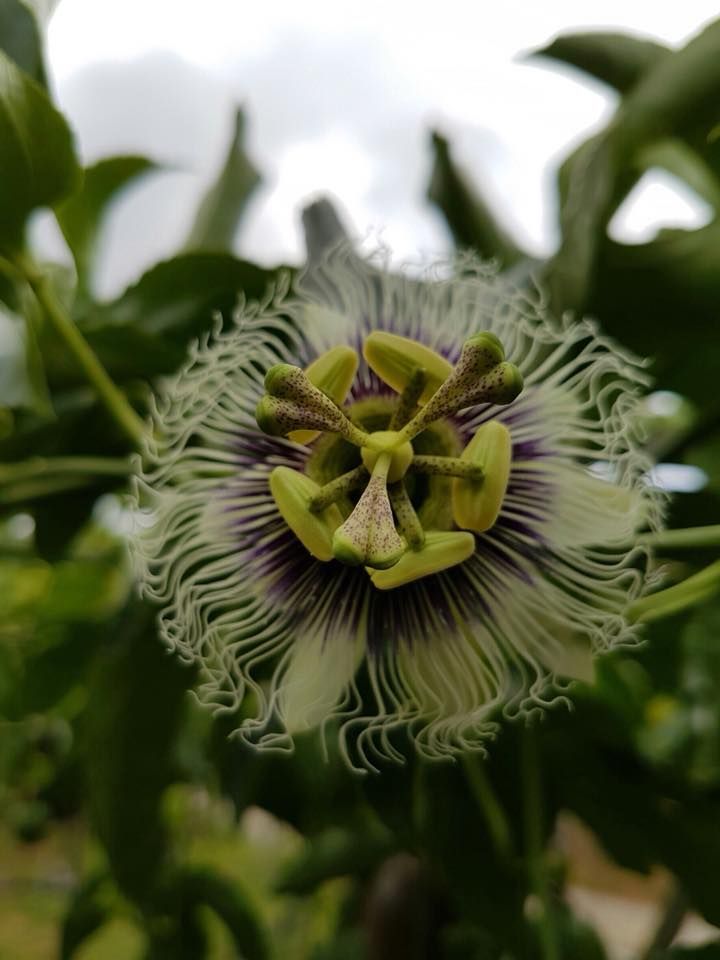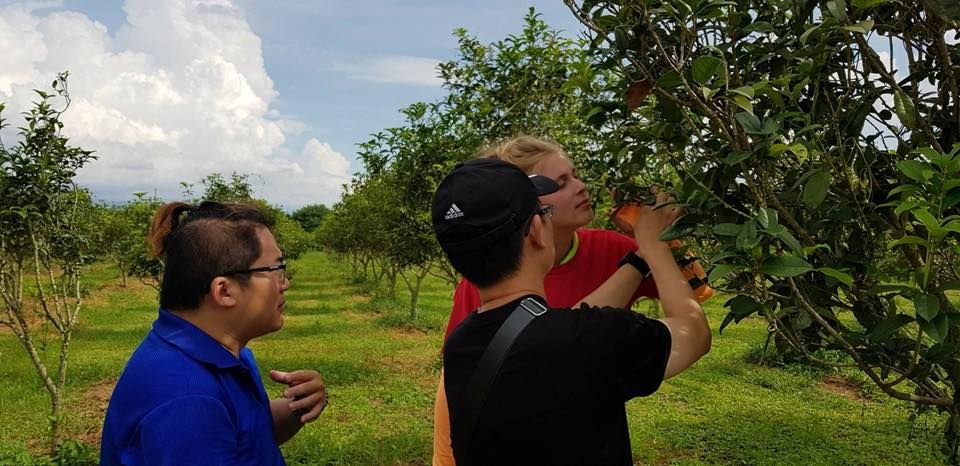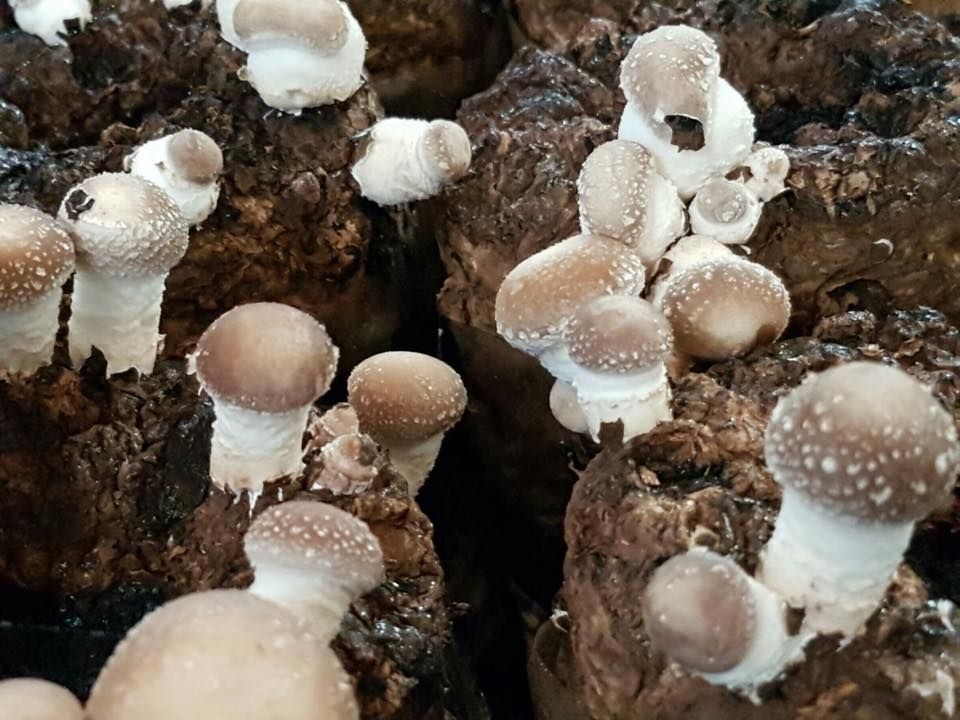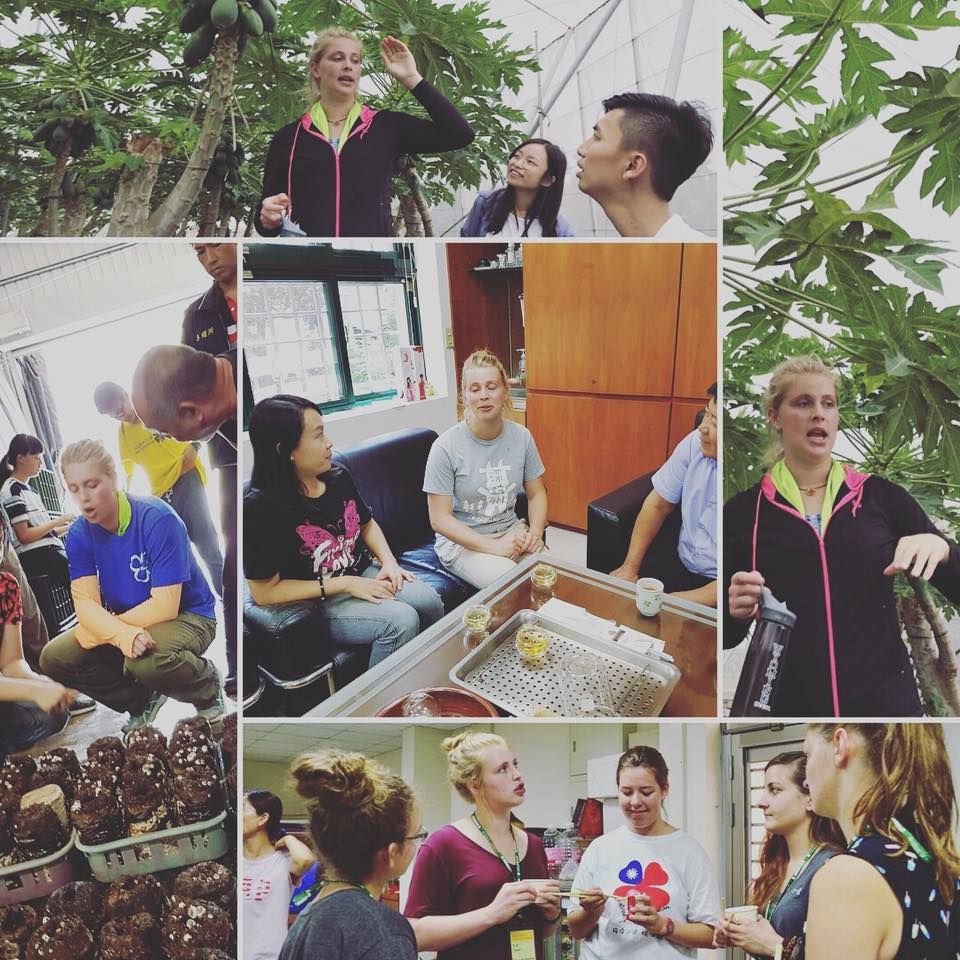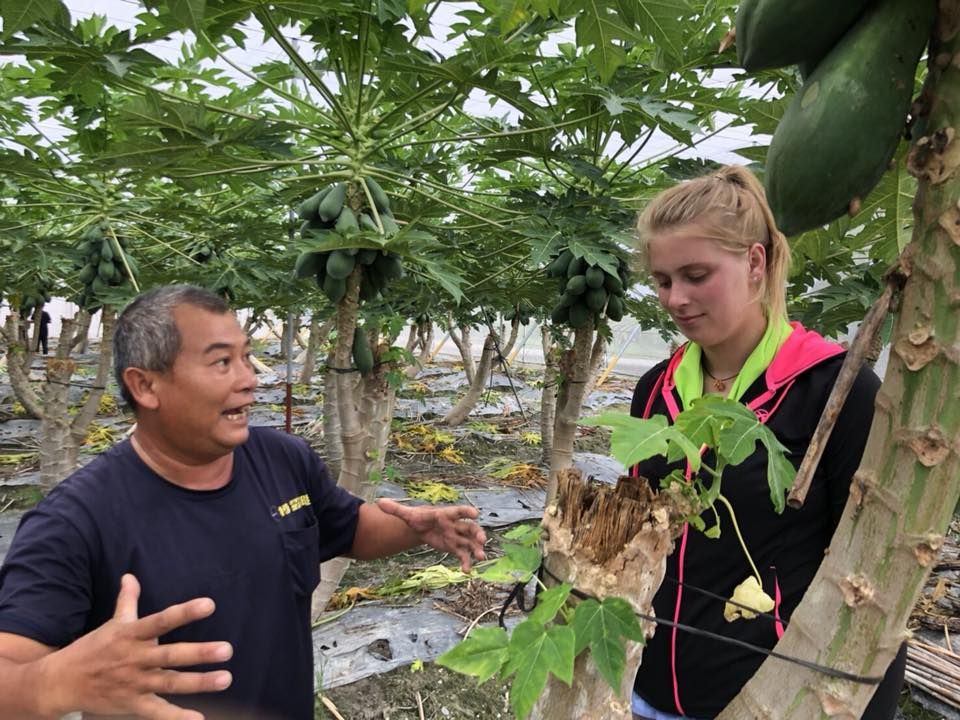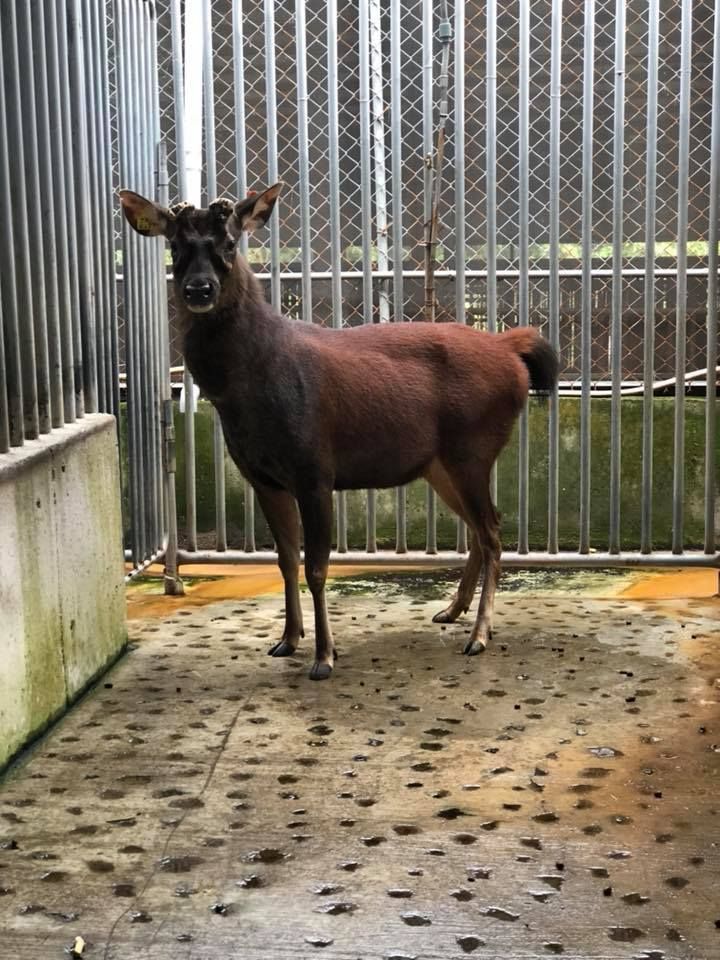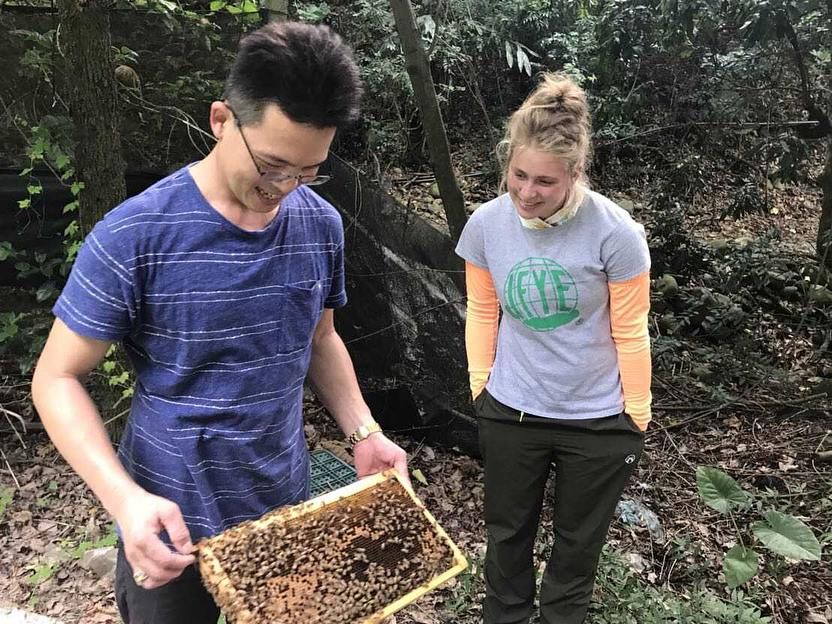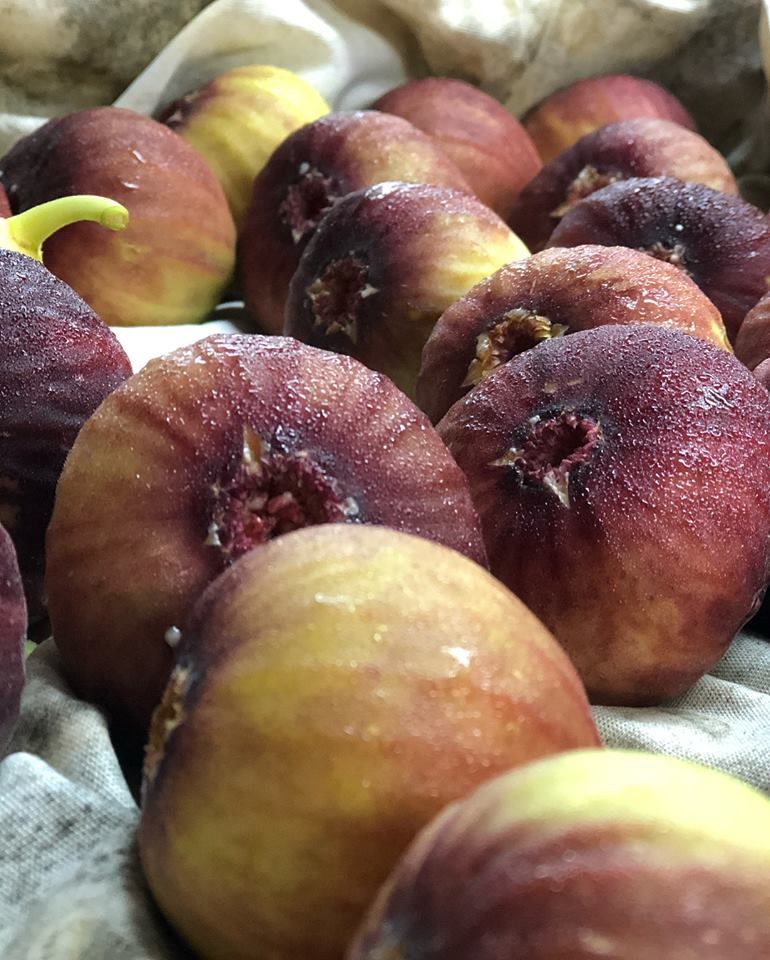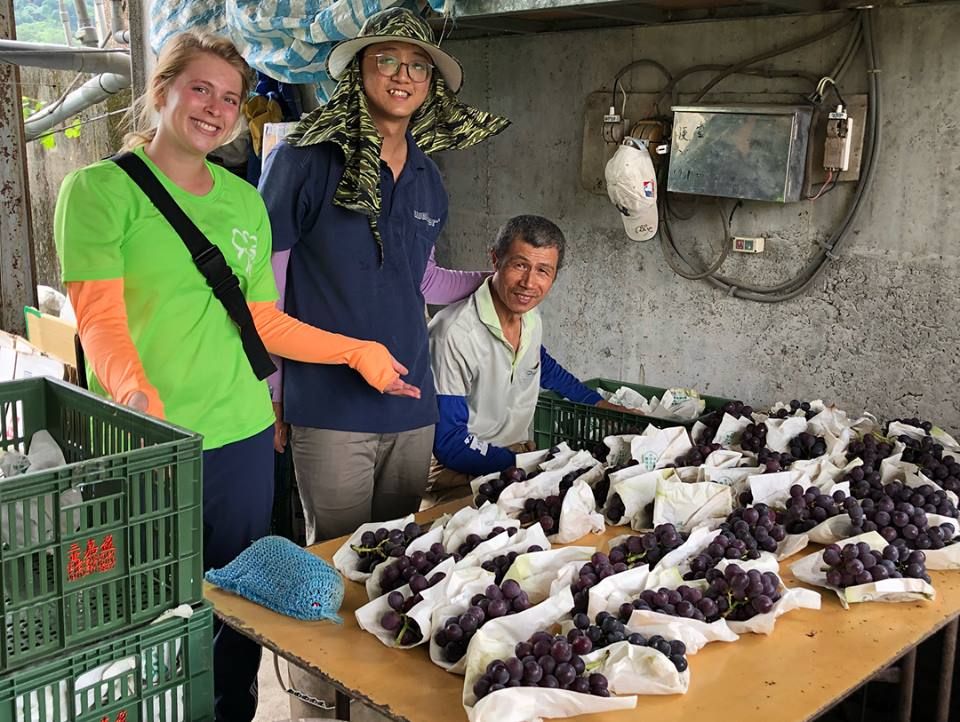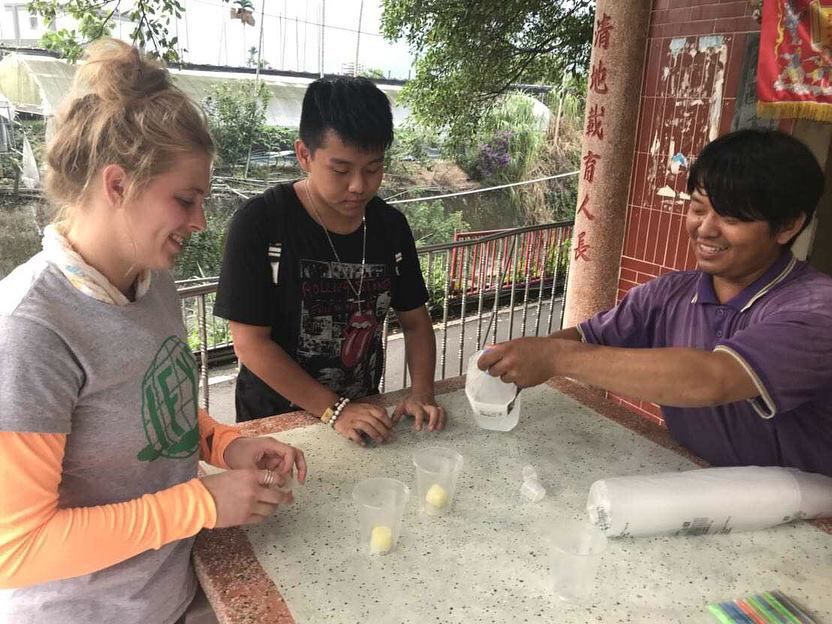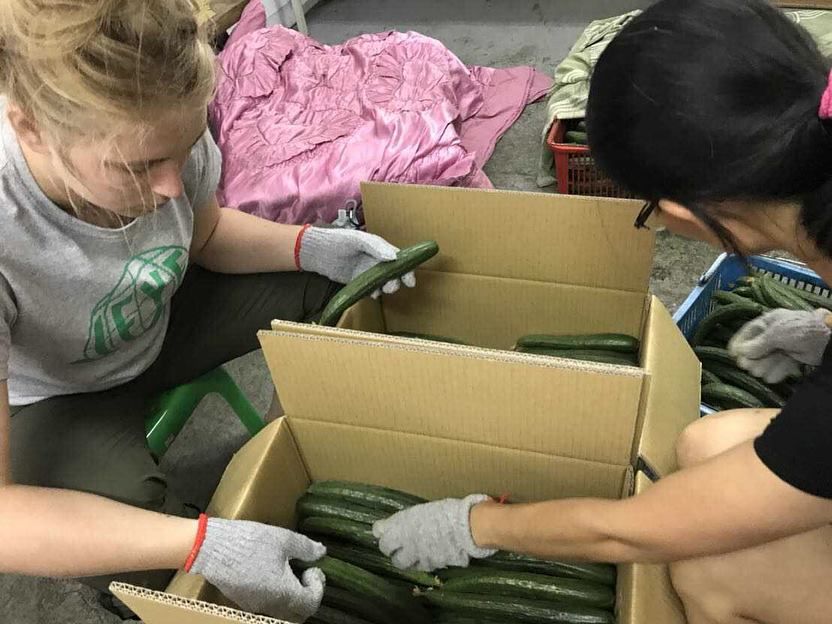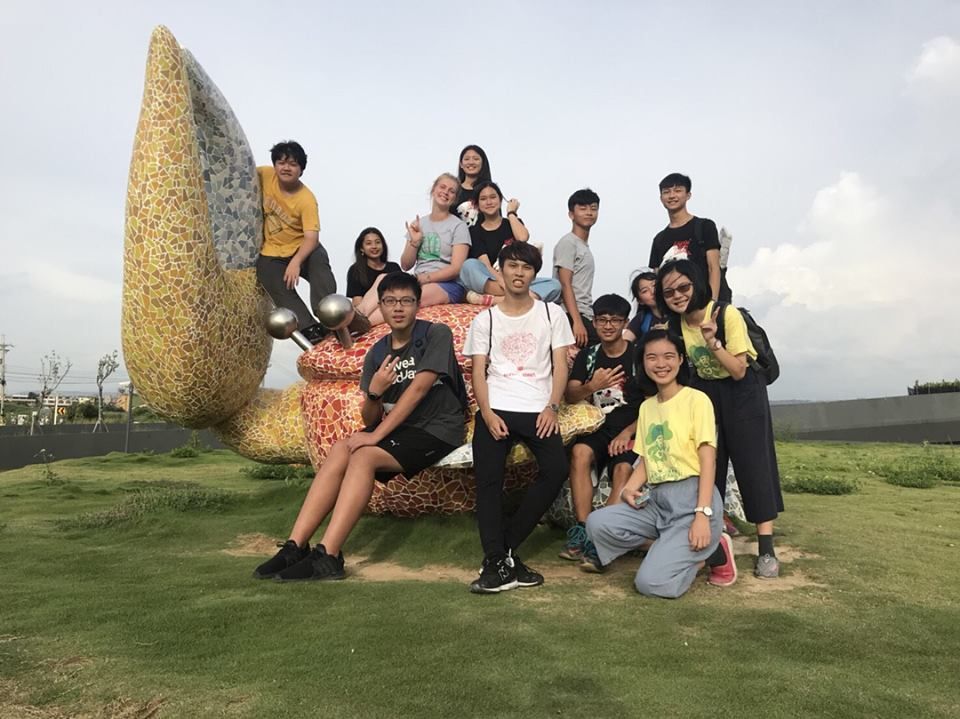Foreign Exchange Program
Hannah Nordby - IFYE Participant - Taiwan/Thailand Parts 1 - 7
Hannah Nordby posted updates of her IFYE Experience to her own Facebook page, which we are sharing with you here.
| Part 1 | Part 5 |
| Part 2 | Part 6 |
| Part 3 (below) | Part 7 |
| Part 4 |
This is Part 3 of Hannah Nordby's IFYE Experience detailing her travels in Taiwan during the month of August.
August 1, 2018
Passion fruit is one of three popular commodities in Puli, Nantou County, Taiwan! Passion Fruit first made its debut in 1901 during Japan’s colonization of the island. Since then it has grown in popularity and is harvested from June to December. The slightly exotic yellow edible center is high in Vitamin A and C! When the passion fruit is ripe and ready to be eaten it falls and the net catches them, making harvest easy and preventing potential harm and souring of the fruit!
August 2, 2018
I spent the day learning about tea, specifically Osmanthus Tea! “The delicate little flowers blend very well with teas. In Taiwan, it's very popular to blend osmanthus flowers with lightly oxidized oolong.” -Teasenz. The farmer came back to work alongside his mother and brother. His job is marketing his families product around Taiwan and even China! Times are difficult for farmers around the world, often times this family spends more money getting their product to markets to sell than they make selling it once they get there.
This family works hard to better their farming practices while at the same time expanding their farm. While feeding the world is a daunting idea, when we focus on doing the best job we can at home and share our story we inspire others to do the same.
Comic Relief: Oh and I got to take a spin on a lawn mower too!
August 3, 2018
After visiting a mushroom farm and some back and forth between my translator and I here is the full mushroom story:
Mushrooms are planted into small cylinder bags packed with manure fertilizers. These packages are watered and shaken at 20 day intervals to stimulate growing. Keeping mushrooms at the ideal temperature is extremely important. Last year temperatures were higher than normal, which had a detrimental effect on yields across Taiwan. To combat higher temps some fortunate farmers have invested in high tech buildings that have timers set when to water, how much to water as well as monitors controlling humidity etc.
While technology is helpful in combating challenges it is also expensive and not easily available to everyone.
August 4, 2018
While in Taiwan I’ve found that while there’s a language barrier, there is always a way to relate with people.
Right away I listen to their stories and try my best to engage by asking questions...slowly and clearly with lots of hand gestures (refer to example pictures)...we usually figure things out, which I think is a rewarding for both of us!
I also always make sure to show them pictures of home and I AWAYS get the same responses:
- Wow so big! (Referring to the ranch)
- Your brothers are handsome!
- You and Tate look so much alike!
I got a new comment at my last stop. After introductions and shaking hands, before the pictures were even taken out, the older gentleman made a comment that our hands were similar. He pointed to his own saying “farmer” and then feeling the calluses on mine (which I know are nothing compared to some real old time farmers and ranchers) and said “same”. It felt nice knowing that while we are different, we both work hard, dedicating time to a way of life and our hands symbolize that shared passion. The best part was we didn’t need to communicate this passion, it was simply known.
August 6, 2018
Before coming to Taiwan I thought you only ate Papaya when it was ripe. Visiting a Papaya farm completely threw that assumption out the window! While you can eat the papaya when it’s orange and ripe, you can also harvest the green unripened papaya.
It reminds me of cabbage texture but without that cabbagie taste (if that makes any sense). Some tasty ways to eat the unripened papaya is after peeling, shred the flesh and add a little sugar, salt, lime, garlic, dragon fruit, orange & passion fruit mix, or carrot- mix and match depending on if you want a fresh fruit or tangy taste.
These papaya trees are two years old. If you look closely you can see where they cut last years growth off and a new shoot grew from the trunk. Because they grow in a greenhouse, tree height is an issue. While pruning helps extend tree life, after so many years they will cut down and plant new papaya trees.
August 8, 2018
I’ve had the opportunity to visit two deer farms (Formosan Sambar Deer farm and another one) while in Nantou County Taiwan! Farmers harvest the horns once a year in May starting when the deer reach age 3. What exactly do they do with the horns? Two of the most common byproducts are medicine and wine” or what I would call straight liquor (very potent) from the horns.
Fun Fact: deer horns get bigger until age 10(ish) and then they start getting smaller again!
August 9, 2018
I visited my first bee farm in Taiwan! Here are some of the highlights:
- Royal honey is a special honey made just for the queen bee.
- A big problem facing the Taiwanese Bee industry is huge hornets that can kills bees AND humans.
- When bees get sick beekeepers can’t cure them, however the sick bees are still fed and taken care of until they officially die.
- You can eat the pollen from tea flowers! It actually tastes quite good!
- While many farmers use greenhouses in Taiwan to protect their crops, the downside effect is that bees die quickly because the environment is so hot.
With global environmental changes, beekeepers face new challenges of keeping bees alive, an issue we also face in the United States. Beekeepers do their best to keep hives in safe locations where they are not exposed to chemicals and other negative environmental effects as well as protect them from hornets.
August 11, 2018
I don’t know the official name of this fruit but I was told it’s “common” name is no flower fruit... the fruit is literally the flower!
This farmer grows the fruit in a greenhouse, protecting it from typhoons, bugs and birds! While greenhouses and nets result in farmers harvesting a higher percent of quality product they are also very expensive. Many farmers do without and learn to live with crop loss to outside elements.
When evaluating for quality “no flower fruit” size and color don’t matter as much a freshness! While packaging fruits are sorted based on firmness vs softness and sold accordingly. Because restaurants will take more time using the fruit they desire firmer fruits, whereas market places that move the fruit quickly want ripe ones ready to eat!
August 12, 2018
I met a grape farmer that has been in the business for 50 years! His son came back 3 years ago after working in a butcher packaging meat- reminded me a bit of dad!
These grapes are a variety crossed between American and European species. They start growing in March and the first harvest is in August (5 months), the second harvest is 4 months later in December!
Because Taiwan’s weather is hot, rainy and humid it provides the ideal conditions for bugs and fungi to flourish! To minimize crop loss they spray pesticides when the plant is young (making sure to follow a specific timeline and holding period to ensure consumer safety).
Of course this means for a time period grapes are at risk to fungi and bugs, 4 weeks before harvest when the grapes are still green they put bio-degradable bags ($1 Taiwanese dollar/bag) on for protection until harvest. Of course they still see some loss as bags don’t provide 100% protection, but it is the option that best protects consumers and maximizes yield!
August 13, 2018
While in Taiwan I have figured out that they use the words lemon and lime interchangeably. I have been fed “lemon” and thought “definitely lime” and vis versa. At first I thought it was just a result of the language barrier, but after I did some research I found out it’s actually a confusion for many foreigners in Taiwan!
So long story short there is the debunking of many foreigners confusion about the Taiwanese lemon/lime! Side note: now after writing this I can’t remember if it was a lime that was really lemon or lemon that was really lime farm I went to BUT the important part is I picked some myself and then shared laughs over honey lemon/limeade!
August 14, 2018
From greenhouse to plate I got to follow the full cucumber experience!
Starting in the greenhouse cucumbers grow best under conditions of high temperature, humidity, and light intensity...basically just described Taiwan’s environment in a nutshell!
Harvest time depends upon end use for the cucumber. A general rule of thumb is 2 inch cucumbers are best for pickling while 5-7(ish) inches is best for eating! If a cucumber gets too big the skin becomes tough and bitter, much less desirable for eating!
When sorting cucumbers you look for uniform shape and ideal length of 6 inches. Cucumbers that don’t make the cut are chopped up to be pickled or made into a relish type product.
In Taiwan they like topping cucumbers with soy sauce, sesame oil or salt...or sometimes a little of all of the above!
August 31, 2018
While in Taichung I participated in a summer extension education program where 4-H members visited farms as well as learned how to cook and eat appropriately to achieve a healthy lifestyle.
My host mom and 4-H leader May partners with a local high school club that focuses on learning English in a fun way, through drama! They perform several plays throughout the year where they act, dance (they are really awesome dancers...just saying) and sing! It reminded me of my own hometown Slope County Players and all the joy they find in putting on the fair show and dinner theatre.
Club members participate in 4-H activities and the Farmers Association helps fund some of the costs associated with performances. This is a great example of how thinking outside the box to form partnerships can benefit both groups involved.
It also was a huge benefit to me because I got to spend two weeks with an amazing group of people who showed me all around Taichung annnnd I got to teach them some Hannah slang ;) thank you so much for everything!
In Taiwan they like topping cucumbers with soy sauce, sesame oil or salt...or sometimes a little of all of the above!
Read Part 1 of Hannah's Experience



